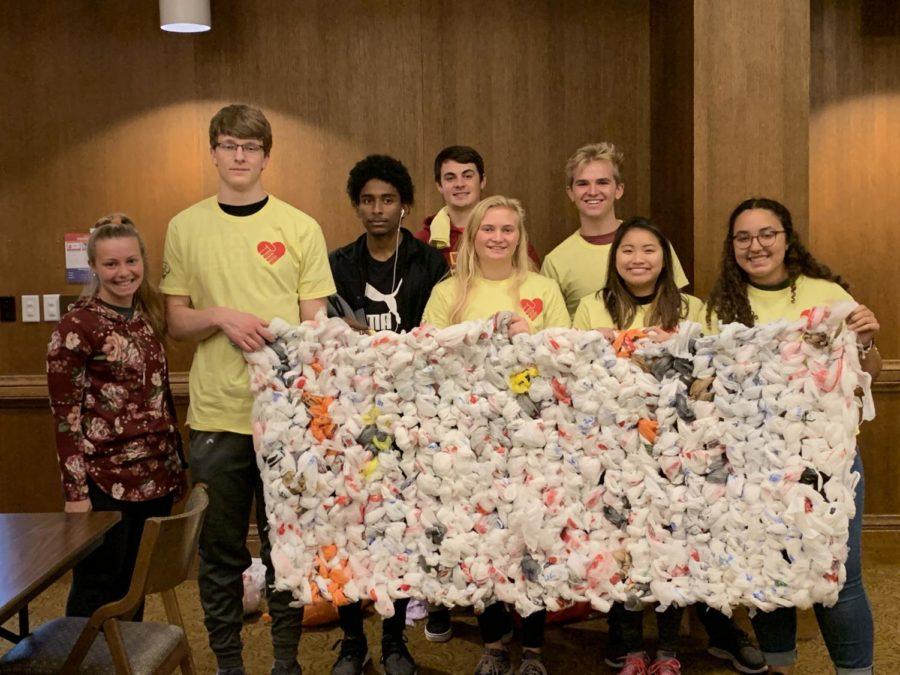Bed of Bags uses plastic to help homeless communities
Bed of Bags is a fairly new club on campus that works to weave plastic bags into beds for homeless individuals and communities.
November 7, 2019
A new club on campus is aiming to help the homeless while putting plastic to good use.
Bed of Bags is a new club at Iowa State that started last spring by current senior and club president Camille Miller. Bed of Bags is made up of Iowa State students who use plastic shopping bags to make durable, waterproof beds for homeless people.
In addition to helping the homeless, the club is also making a positive impact on the environment. To make one bed, it takes about 700 plastic bags. Bed of Bags collects plastic bags from group members, friends and places like homeless shelters or the Salvation Army.
As a new group, Bed of Bags has yet to recruit more members, but has appealed to a variety of different students, including marketing, environmental science, general education and engineering majors. They meet once a week for two hours in Pearson Hall. During that time, they are usually able to make at least one bed.
The time it takes about five people to complete one bed is about an hour. This might mean two people use their arms to knit while three other group members make plarn, or plastic yarn.
“They just do the plarn making, which is super easy; it’s really repetitive and can be super relaxing after a long day of school work,” said Madison Strauss, club member and junior in marketing.
Other opportunities for student involvement within the club extend beyond weaving plastic. These activities include poster making, plastic bag collection, distribution of the beds and events.
The group’s main drive is charitable, but there is also a motive to be environmentally conscious and to make a positive impact on the environment. Since its start in the spring of 2019, Bed of Bags has made 40 beds. After the beds are made, they are distributed to either Ames, Des Moines or Cedar Rapids and taken to churches, homeless shelters and donation centers.
“I would say they last forever,” said Miller about the durability of the beds.
Plastic is ideal because it is not biodegradable; it is water resistant and durable; and it will provide a thick padding between the bed and the ground, unlike a sleeping bag that provides less cushioning.
The only reason a bed could potentially break is from being cut or ripped, but it can be mended by tying the plastic back together. This is important to consider for those who use the bed, because they will not always have a dry place to sleep or somewhere soft to lay down.
“Iowa has one of the lowest homelessness rates, but there is still a need,” Strauss said. “Just because you don’t see [homeless people] doesn’t mean they aren’t there.”
Although they are new to campus, they have already made a difference in the Ames and Iowa State community by using their club to spread awareness about their initiative.
Last weekend, club members taught residents at a local retirement home how to make beds. Next week, members will go to Iowa State’s knitting club to show members how they can use their hobby to benefit the homeless as well. Members will also attend sorority and fraternity service days to teach them how to knit and eventually pay it forward.







